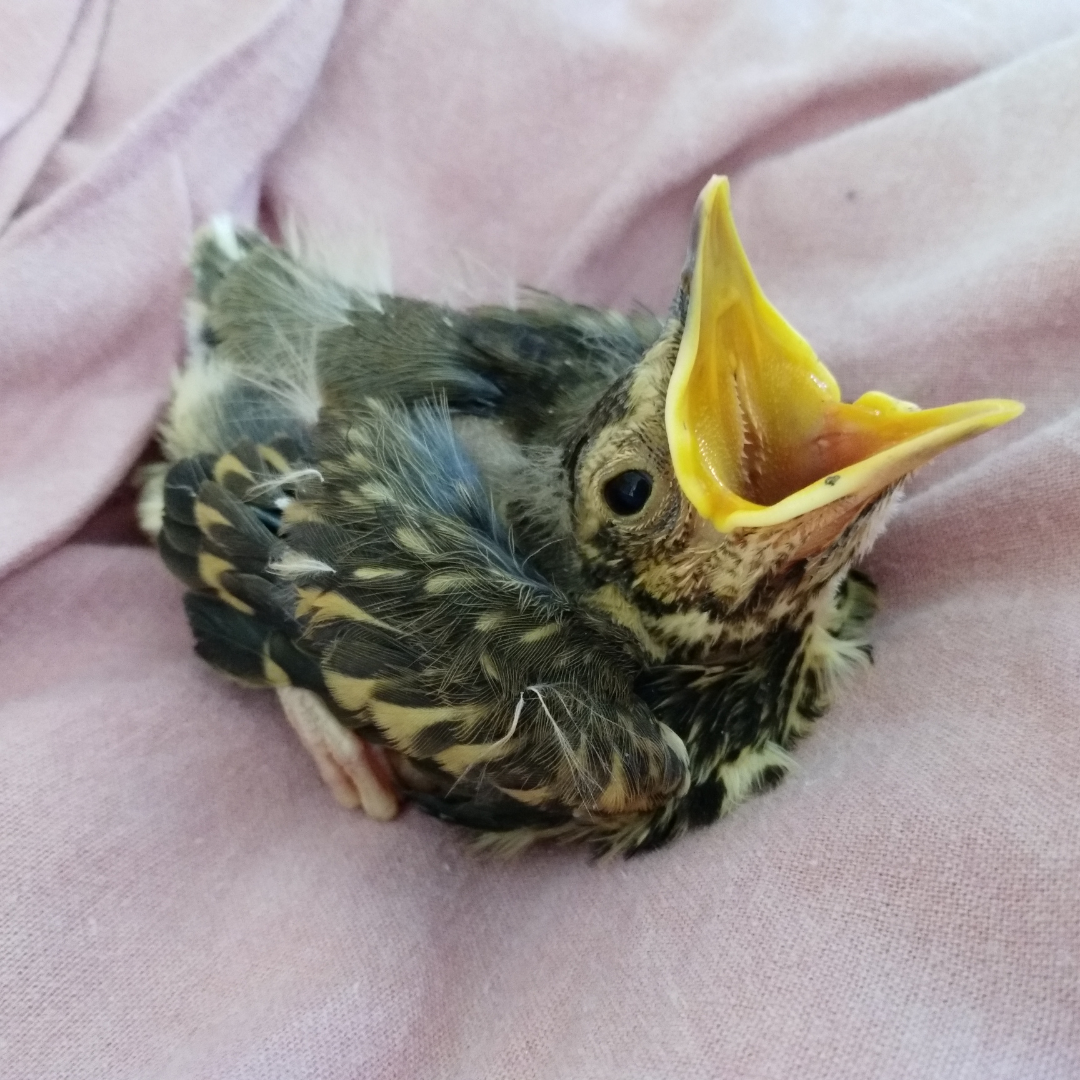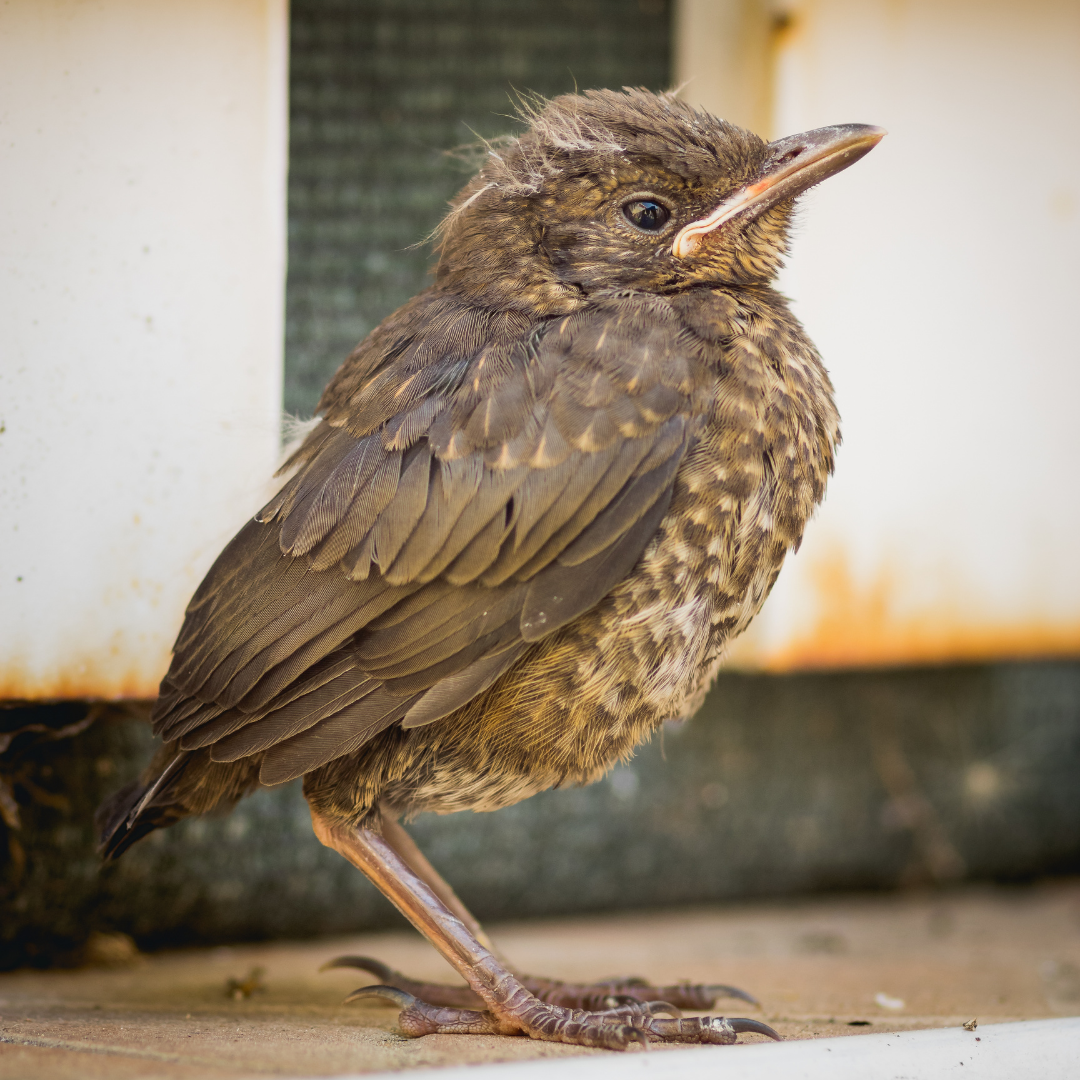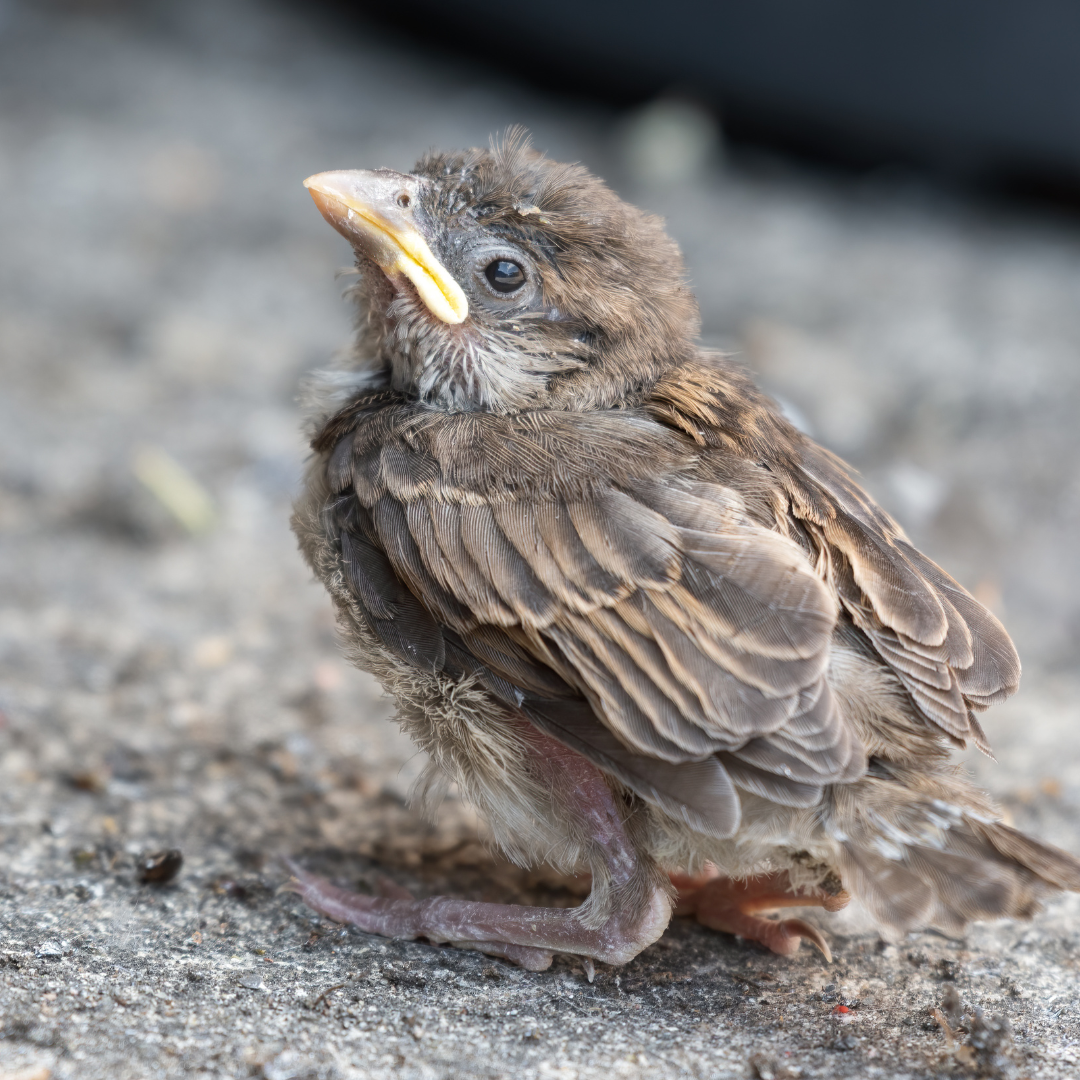What to do if you find a baby bird?
It’s exciting to find a baby bird, but what should you do to give it the best possible chance of survival?
Spring seemed to come early to New Zealand this year with the first fledglings being seen in late August. So what should you do if you find a baby bird to ensure it has the best possible chance of survival?
The first thing to go is to establish if it's a nestling or a fledgling as their age and level of development makes a big difference to what you need to do next.
What is a nestling?
A nestling is a baby bird that is too young to have left the nest and are totally dependant on their parents. They are often bare with no feathers or just brown fuzz, they may not even have their eyes open yet.
What is a fledgling?
A fledgling is the stage of life between hatching and being able to fly. Some birds will stay in the nest while they are fledglings, but songbirds don't. They leave the nest but say close by in the undergrowth where their parents still feed them and protect them. During this time they are taught how to find food, identify preditors and how to fly.
A fledgling is feathered but has a short tail and wings as their feathers are still growing. They can walk, hop and flap, they may also be attempting to fly.
Common fledglings you may find in New Zealand.
What to do if you find a fledgling?
Is the fledgling in an unsafe place?
If the fledgling is in an unsafe place move it to some undergrowth nearby. Keep an eye on it for an hour or so to ensure its parents come back. If they do that's great, they will be able to look after it.
The fledglings parents haven’t returned.
If you've been keeping an eye on it for over an hour and the fledgling’s parents haven’t returned then you need to take it to a bird rehab centre. It's important to keep the bird warm and not to handle it too much. The rehab centre will be able to look after the bird.
The fledgling is unwell.
Being on the ground fledgling are prone to attack by cats or dogs, or they may simply be unwell. If so then it needs urgent care. Keep it warm and take it to your local rehab centre.
What to do if you find a nestling?
I can see the nest that a nestling has fallen from.
If you find a nestling and can see the nest it has fallen from, as long as it feels warm, and you can reach the nest, you should put it back carefully. Keep an eye on it for about an hour to ensure its parents are around. If they don't come back then take the bird to your local rehab centre
I've found a nestling but it feels cold.
If you find a nestling and it feels cold you will need to warm it up gently and take it to your nearest rehab centre.
I've found nestling but I can't see a nest.
If you have found a nestling but can't find the nest it has come from, or you can see the nest by are unable to reach it, keep the bird warm and call your rehab centre. They may give you suggestions of how to provide a fake nest which the parents will return to. As experts, they will be able to advise on the best steps to ensure the bird’s safety.
I found a baby bird, can I raise it myself?
Although raising a bird yourself may seem like the best solution it’s often not. Raising baby birds is a difficult and time-consuming process and should be undertaken by experts. Birds raised away from their parents are have less chance of survival long term as they won't be learning life skills from their parents.
I've found a native New Zealand bird, can I keep it?
Any native New Zealand bird can only be cared for by someone that holds certification from the Department of Conservation. A bird rehab centre or your local vet will be able to advise on a certified carer.
Baby birds are very cute but they need expert care, so if you find one and aren't able to leave it in the care of its parents then look up your local bird rehab clinic. Or if you can't find one any vet will be able to give you advice on who to call.
Support adult birds in springtime too.
Springtime is such an exciting time for birdlife with the preparation and arrival of the new generation. During this time the adult birds have to work extra hard as they build nests, raise young, defend territories and have to forage for food for themselves as well as hungry young. So it's also important to remember that they may need a bit of extra help too. One way you can help is to provide some supplementary nutritional food.
Kohab Wild Bird Seed is a perfectly balanced blend of fresh and nutritious ingredients that is designed to attract a range of garden birds in New Zealand. This seed mix contains a variety of vitamins and minerals that are essential for the birds' health and well-being. In addition, our Kohab Bird Nectar is an ideal option for Tui, Silvereye (Waxeye) and Bellbirds. The nectar is enriched with beetroot, which not only enhances its red color but also provides a nutritional boost to the birds.
All our bird foods are available online and can be delivered anywhere in New Zealand in just a few days. Plus they are packed without any plastic.
If you'd like to find out more about how you can support the birds you kohabit with this spring take a look at our blog: Support your NZ Garden Birds this spring.
We'd love to hear about your springtime bird stories, just drop us a note, or tag us on Facebook or Instagram using #kohab.nz






